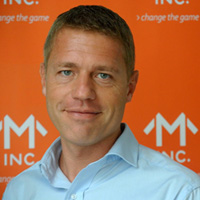The Executive Master in European Sport Governance: A Winning Model for Educating Sport Leaders for Tomorrow? – Michael Pedersen
December 18, 2014
Governance model that includes all partners
The Executive Master in European Sport Governance (MESGO) comprises a partnership between academic partners and sport partners. Academic partners comprise Birkbeck Sports Business Centre at University of London (United Kingdom), Centre de Droit et d’Économie du Sport at University of Limoges (France), Johannes Gutenberg University Mainz (Germany), Institut Nacional d’Educació Física de Catalunya at University of LLeida (Spain) and Sciences Po (France). Sport partners comprise European Volleyball Confederation (CEV), European Handball Federation (EHF), International Basketball Federation – Division Europe (FIBA Europe), Rugby Europe, International Ice Hockey Federation (IIHF) and Union of European Football Associations (UEFA).
The Executive Master is governed by two committees; a Management Committee and a Scientific Committee. The Management Committee oversees MESGO as such and is comprised of representatives from all academic partners and sport partners. The Scientific Committee oversees the curriculum and selection and assessment of candidates. It is comprised of academic partners only. The Centre de Droit et d’Économie du Sport at University of Limoges (France) manages the MESGO coordination with all partners. Sciences Po (Paris) hosts a MESGO Secretariat.
MESGO is funded partly through contributions by its sport partners and partly through a participant fee (EUR 16,600 per participant, excl. travel and accommodation for the nine sessions).
Next class to start in 2016
The current MESGO III Class started in September 2014 and will conclude in April 2016. Applications for the MESGO IV Class will be accepted as of January 2016 with the Class starting in September 2016.
Applicants must have at least five years of experience, mainly in sport, an academic diploma and a good command of English. Two different academic partners review all applications independently. 40 candidates are shortlisted for interviews. In selecting the candidates, MESGO strives to ensure high levels of diversity in terms of sports and countries represented in a class.
MESGO is also organizing various opportunities for its alumni to stay connected after graduating.

Critical questions for sport leaders to consider
The leadership of MESGO offers a lot of insights and inspiration regarding what it takes to educate sport leaders for tomorrow. Critical questions for sport leaders to consider, as they start modernizing governance standards for the future, include:
– What is the role of education in ensuring good governance in sport?
– To what extent should governance education be focused on teaching sport leaders what good governance looks like, and to what extent should it be focused on teaching sport leaders how to motivate and drive behavioural change among their peers?
– How broadly or narrowly should governance teaching be scoped, in terms of areas to cover and in terms of the depth of the various areas covered? – Which are the similarities and differences between good governance in sport and good management practices in sport?
– Who should pay for governance education of sport leaders? – To what extent should sport leaders pay themselves and to what extent should their sport governing bodies pay?
– How do you best ensure that both operational leadership (professional staff) and political leadership (board members) undergo continued governance education?
– How can an educational institution best showcase a model case of good governance in the way that it governs educational programmes? – What should transparency and accountability look like? – Which are the potential conflicts of interest to be addressed and accounted for?
A special appreciation
I would like to appreciate the kind support of MESGO in providing perspectives and information for this contribution, particularly Ms Julie Trošić, MESGO Manager at the Centre de Droit et d’Économie du Sport (CDES) and Mr Didier Primault, Executive Director of the CDES and member of the MESGO Scientific Committee.
Links to my previous contributions for iSportconnect’s expert column on sport governance:
14) ‘South African Rugby Union: A Winning Model for Annual Reporting?’
13) ‘The 2014 South American Games: A Winning Model for Ticketing at International Sport Events?’
12) ‘US Open: A Winning Model for Environmental Stewardship in Sport?’
11) ‘The International Paralympic Committee: A Winning Model for Addressing Gender Equity in Sport?’
7) ‘Football in Germany: A Model Case for Addressing Match-Fixing?’
5) ‘England and Wales Cricket Board: A Winning Model for Transparency and Accountability in Sport?’
4) ‘Badminton World Federation: A Winning Model for Democratizing Sport in the 21st Century?
2) ‘The Business Case for Good Governance in Sport’
1) ‘Sport Governance – What Are We Actually Talking About?’
Michael also publishes a leadership series on good governance in sport that is available for free download at: http://minc.ch/sport-practice.html



